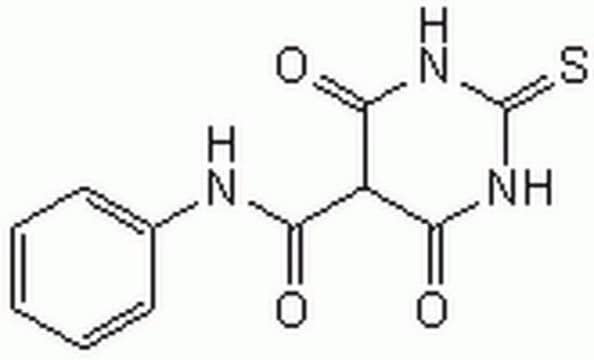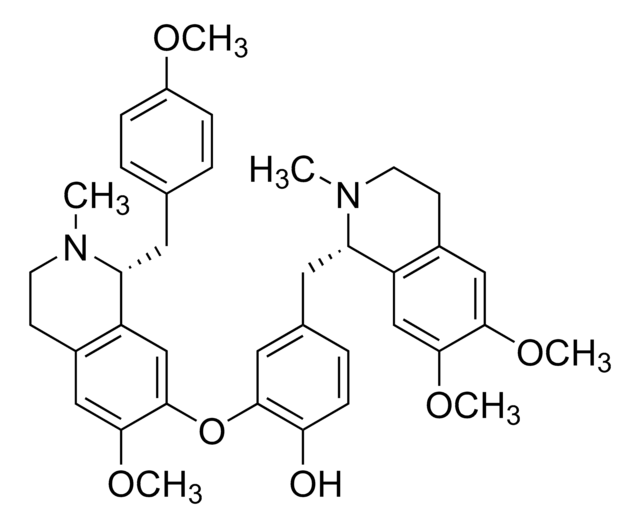M2070
Merbarone
≥98% (HPLC), solid
Synonym(s):
5-(N-Phenylcarbamoyl)-2-thiobarbituric acid, NSC-336628
About This Item
Recommended Products
Assay
≥98% (HPLC)
form
solid
drug control
regulated under CDSA - not available from Sigma-Aldrich Canada
solubility
DMSO: >5 mg/mL
storage temp.
2-8°C
SMILES string
O=C1NC(=S)NC(=O)C1C(=O)Nc2ccccc2
InChI
1S/C11H9N3O3S/c15-8(12-6-4-2-1-3-5-6)7-9(16)13-11(18)14-10(7)17/h1-5,7H,(H,12,15)(H2,13,14,16,17,18)
InChI key
JARCFMKMOFFIGZ-UHFFFAOYSA-N
Application
Biochem/physiol Actions
Storage Class Code
11 - Combustible Solids
WGK
WGK 3
Flash Point(F)
Not applicable
Flash Point(C)
Not applicable
Personal Protective Equipment
Certificates of Analysis (COA)
Search for Certificates of Analysis (COA) by entering the products Lot/Batch Number. Lot and Batch Numbers can be found on a product’s label following the words ‘Lot’ or ‘Batch’.
Already Own This Product?
Find documentation for the products that you have recently purchased in the Document Library.
Articles
Agents reported to activate cellular caspases include chemotherapeutic drugs, TNF receptor agonists, and other enzymes. Inhibitors of apoptosis were the first identified endogenous caspase inhibitors.
Agents reported to activate cellular caspases include chemotherapeutic drugs, TNF receptor agonists, and other enzymes. Inhibitors of apoptosis were the first identified endogenous caspase inhibitors.
Agents reported to activate cellular caspases include chemotherapeutic drugs, TNF receptor agonists, and other enzymes. Inhibitors of apoptosis were the first identified endogenous caspase inhibitors.
Agents reported to activate cellular caspases include chemotherapeutic drugs, TNF receptor agonists, and other enzymes. Inhibitors of apoptosis were the first identified endogenous caspase inhibitors.
Our team of scientists has experience in all areas of research including Life Science, Material Science, Chemical Synthesis, Chromatography, Analytical and many others.
Contact Technical Service








